Password Pandemonium: Top Password Fails and How to Avoid Them
Tuesday, April 23, 2024

Imagine discovering that your simple 'love123' password has opened the door to hackers, turning your digital world upside down overnight. From massive service outages to embarrassing public exposures, the tales of password pandemonium are both shocking and surprisingly common.
In this post, we'll dive into some high-profile password fails and equip you with smart, straightforward strategies to ensure your password doesn't become the next hacker's easy target.
In the digital age, passwords play a critical role in protecting our online identities, accounts, and sensitive information. However, despite their importance, many people still engage in poor password hygiene by using weak, reused, or otherwise insecure passwords. The consequences of these mistakes can be severe, from compromised email accounts to massive data breaches affecting millions.
Recent studies indicate that over 80% of data breaches are due to compromised credentials, demonstrating just how prevalent password fails have become. With our work, banking, shopping, and social lives increasingly occurring online, it's essential that internet users of all kinds re-examine their password habits and take steps to enhance their security.
Notorious Password Fails
Weak and reused passwords have led to many high-profile data breaches and security incidents over the years. These password fails demonstrate the severe consequences of poor password practices.
Roku Incident: March 2024
In early 2024, Roku, a popular television streaming platform boasting 80 million users, fell victim to a cybersecurity incident impacting around 15,000 of its customers. The company reported that the breach likely stemmed from cybercriminals acquiring Roku customer usernames and passwords from external sources. This suggests that some Roku users might have used identical login credentials across different services, which the attackers exploited to gain unauthorized access to their Roku accounts.
This incident serves as a stark reminder of the risks associated with reusing passwords on multiple platforms. Affected Roku users found themselves locked out of their accounts, with attackers attempting to make unauthorized purchases of streaming subscriptions. Thankfully, Roku confirmed that sensitive data such as social security numbers, full account numbers, and other personal information were not compromised.
In response to the attack, Roku has urged all impacted users to reset their account passwords as a precautionary measure.
Twitter Account Compromise
In early 2022, several high-profile Twitter accounts belonging to celebrities and political figures were compromised due to credential stuffing attacks. The attackers used previously leaked passwords to gain access to Twitter accounts where the passwords had not been updated or secured with multi-factor authentication.
RockYou2021: The Largest Password Compilation Ever
In 2021, a hacker compiled and released a gigantic list of 8.4 billion passwords, dubbed RockYou2021, which was posted on a popular hacker forum. This compilation was sourced from previous data leaks and breaches, aggregating potential access credentials from across the globe. The list's availability exacerbated the risks associated with using weak or reused passwords, significantly amplifying the potential for mass account takeovers across various platforms.
Nvidia Data Leak
Nvidia, a major technology company, experienced a data breach when attackers accessed and leaked employee credentials and proprietary company information. The breach was initiated through a compromised employee account, where the attackers were able to bypass the password due to its simplicity and lack of additional security measures like MFA.
These examples demonstrate how weak or duplicated passwords can lead to catastrophic breaches affecting millions of users. The financial and reputational damage emphasizes the need for unique, complex passwords, especially for sensitive accounts. Failing to follow password best practices puts businesses and individuals at substantial risk in today's digital landscape.
Easy-to-Avoid Password Pitfalls
Weak and reused passwords continue to be one of the biggest cybersecurity vulnerabilities that individuals and organizations face today. Recent studies have found that the most common passwords are still frighteningly insecure - the top 10 passwords in 2023 included "123456", "password", and other trivial combinations of numbers, letters and common words.
The risks of these poor password practices are very real and can lead to devastating consequences. According to Verizon's Data Breach Investigations Report, over 80% of hacking-related breaches involved brute-forcing or using lost or stolen credentials. Clearly, easily guessed passwords provide an open door for cybercriminals to access sensitive accounts and data.
Even more dangerous is the common tendency to reuse the same passwords across multiple sites and services. If one account is compromised due to a weak password, attackers can leverage that to gain access to a victim's other accounts. A report by Google found that 52% of people reuse passwords across multiple accounts, exponentially increasing their exposure.
Weak and reused passwords essentially hand over the keys to a person's digital life to cybercriminals. Taking basic steps to use strong, unique passwords and enabling multi-factor authentication can go a long way in securing online accounts and data. The minor inconvenience is well worth avoiding becoming the next victim of a damaging breach.
Why You Need a Password Manager
Password managers are software tools designed to generate, retrieve, and store passwords securely. They serve as a digital vault that can automatically create unique, complex passwords for each of your online accounts. Password managers completely eliminate the need to manually create and remember passwords yourself.
With a password manager, you only have to remember one master password to unlock access to all your other passwords. The password manager handles the rest, even auto-filling passwords into websites and apps for you. This removes the temptation to reuse passwords across multiple sites or rely on weak, easy-to-guess passwords.
By using a password manager, you avoid many of the common password mistakes that put your accounts at risk. For example, password managers can generate long, random character passwords that would be impossible for a human to memorize. They also store your passwords encrypted, protecting you even if the password database is somehow compromised.
Password managers seriously streamline password management across the many online accounts people use today. You no longer have to waste mental energy constantly creating and remembering unique passwords. Instead, you can let the password manager handle password security, while you focus on just mastering one very strong master password.
Simple Steps to Supercharge Your Password Health
When creating passwords, the most important rule is to avoid predictability. Using random, lengthy passwords with a mix of characters is the best defense against hacking. Here are some tips:
Use passphrases instead of simple passwords. A passphrase is a sequence of words that creates an easy-to-remember but hard-to-guess password. For example, "Cats love to eat tasty tuna!" is much stronger than "ctltt!".
Include uppercase and lowercase letters, numbers, and symbols. The more character types you include, the more complex the password.
Opt for at least 12-14 characters if permitted. The longer the password, the more combinations a hacker would need to attempt to crack it.
Avoid personal information or common words. Never use a pet's name, birthdate, anniversary, or other guessable information in passwords.
Don't reuse passwords across accounts. If one account is compromised, reused passwords give hackers access to more of your data.
It's also critical to update passwords regularly, especially for accounts containing sensitive information. Make it a habit to change passwords every 60-90 days for accounts like:
Email
Banking and financial accounts
Social media profiles
Shopping sites with payment information saved
Setting calendar reminders can help remember to refresh passwords consistently.

Extra Safeguards for Your Digital Life
In addition to strong passwords, there are other proactive security measures individuals and organizations should take to enhance digital protection.
One of the most important is implementing multi-factor authentication (MFA). MFA requires an additional step beyond just entering a password, like entering a code sent to your phone or using a fingerprint scan. This provides an extra layer of security, even if a password is compromised. MFA should be enabled for email, financial accounts, and other sensitive logins whenever possible.
Other good practices include:
Using a virtual private network (VPN) when connecting to public WiFi or working remotely. VPNs encrypt internet traffic to prevent snooping.
Securing home and office wireless networks with WPA2 encryption and a strong password. An unsecured network is an easy target for attackers.
Being cautious of phishing emails and texts asking you to login or provide sensitive info. Hover over links to check the actual destination before clicking.
Avoiding public computers or borrowed devices for accessing sensitive accounts. Always log out completely afterward.
Keeping software updated and using antivirus tools to reduce vulnerability to malware.
By combining strong, unique passwords with measures like MFA and safe browsing habits, individuals and organizations can drastically improve their cybersecurity posture. But it takes diligence and continued effort to implement these practices across all accounts and devices.
Bouncing Back from a Password Disaster
If one of your passwords is compromised, it's important to take swift action to secure your accounts and minimize potential damage. Here are some steps to take:
Change the password immediately. Don't delay - the longer a compromised password remains active, the greater the risk. Use a completely new, strong password.
If you reused the password on multiple accounts, change it everywhere. Give each account a unique, complex password to limit the breach impact.
Monitor accounts closely for suspicious activity. Check bank and credit card statements frequently for unauthorized transactions. Watch for unusual logins or posts on social media accounts.
Enable two-factor authentication, if available. Adding an extra layer of verification makes it harder for attackers to access accounts with only a stolen password.
Run antivirus scans on all devices. Malware or keylogging programs could have captured your new password. Scan devices to detect and remove any threats.
Consider identity theft protection services. If accounts with sensitive personal information were compromised, identity theft services can help monitor and restore your credit if needed.
Report the breach to websites or providers if appropriate. They may revoke compromised passwords across all user accounts or take other security precautions.
Don't panic, but act quickly if a password is stolen. Taking prompt, proactive measures can greatly reduce the potential consequences of a breach. Be especially vigilant in monitoring compromised accounts in the days and weeks following a password theft.
Join the Fight Against Password Breaches
It's time to take action and improve your password hygiene. Don't wait until you experience a breach to make changes. Here are some steps you can take today:
Do an inventory of all your online accounts and write down the passwords. This will help you identify any weak or reused passwords.
Start using a password manager like Lockwell’s free password manager to generate strong unique passwords for each account. Let the manager remember them so you don't have to.
Turn on two-factor authentication for important accounts like email, banking, and social media. This adds an extra layer of security beyond just a password.
Change your most important passwords to new strong passwords. Prioritize accounts like email, financial institutions, and work logins.
Slowly start changing less critical passwords over time. Don't try to change them all at once.
Share this article with family and friends and have a conversation about improving password habits together.
You don't need to overhaul all your passwords today, but getting started with a few small steps can go a long way in boosting your online security. Don't delay - take action now to protect yourself from password fails in the future.
Wrapping It Up: Secure Your Digital Doors
As you’ve seen, a simple password mishap can lead to catastrophic outcomes. Whether it's a hijacked social media account for a prank or a massive data breach costing millions, the consequences of weak passwords are far-reaching and often irreversible. But it doesn't have to be this way.
By embracing tools like password managers, regularly updating your passwords, and adding layers of security through measures like multi-factor authentication, you can shield yourself from the vast majority of cyber threats. Remember, in the digital world, your first line of defense is the strength of your password.
At Lockwell, we’re dedicated to making cybersecurity accessible and manageable for everyone. Lockwell helps simplify password management, enhances security protocols, and ensures that you're not only prepared but ahead of potential threats.
Let’s not wait for a breach to remind us about the importance of password security. Take action today, improve your password habits, and help build a safer digital future for everyone.













